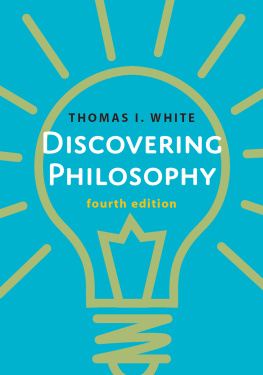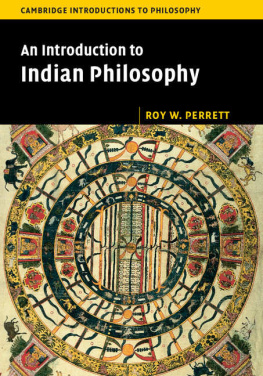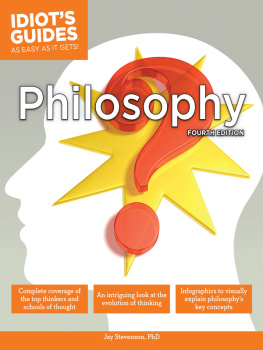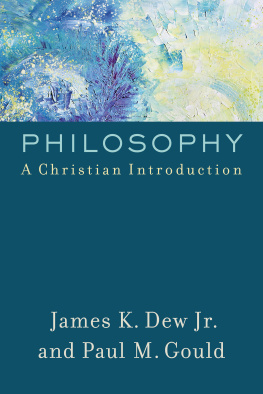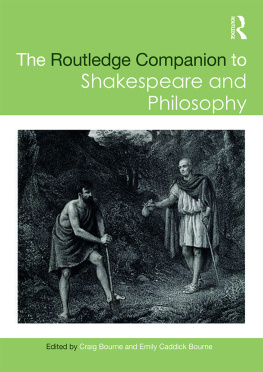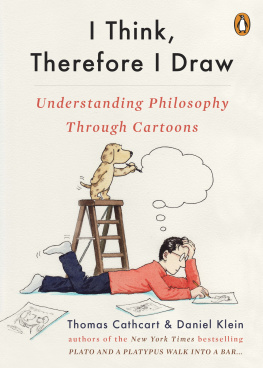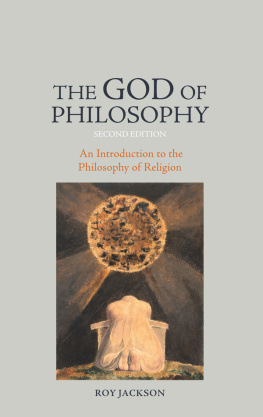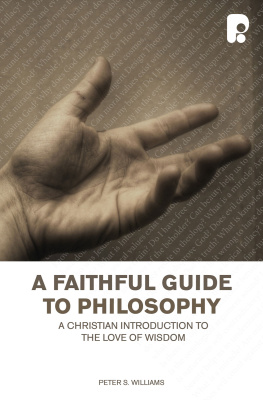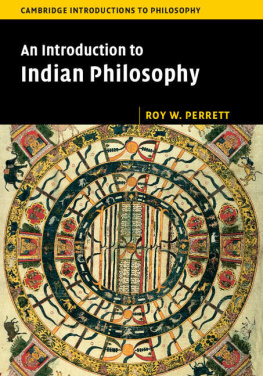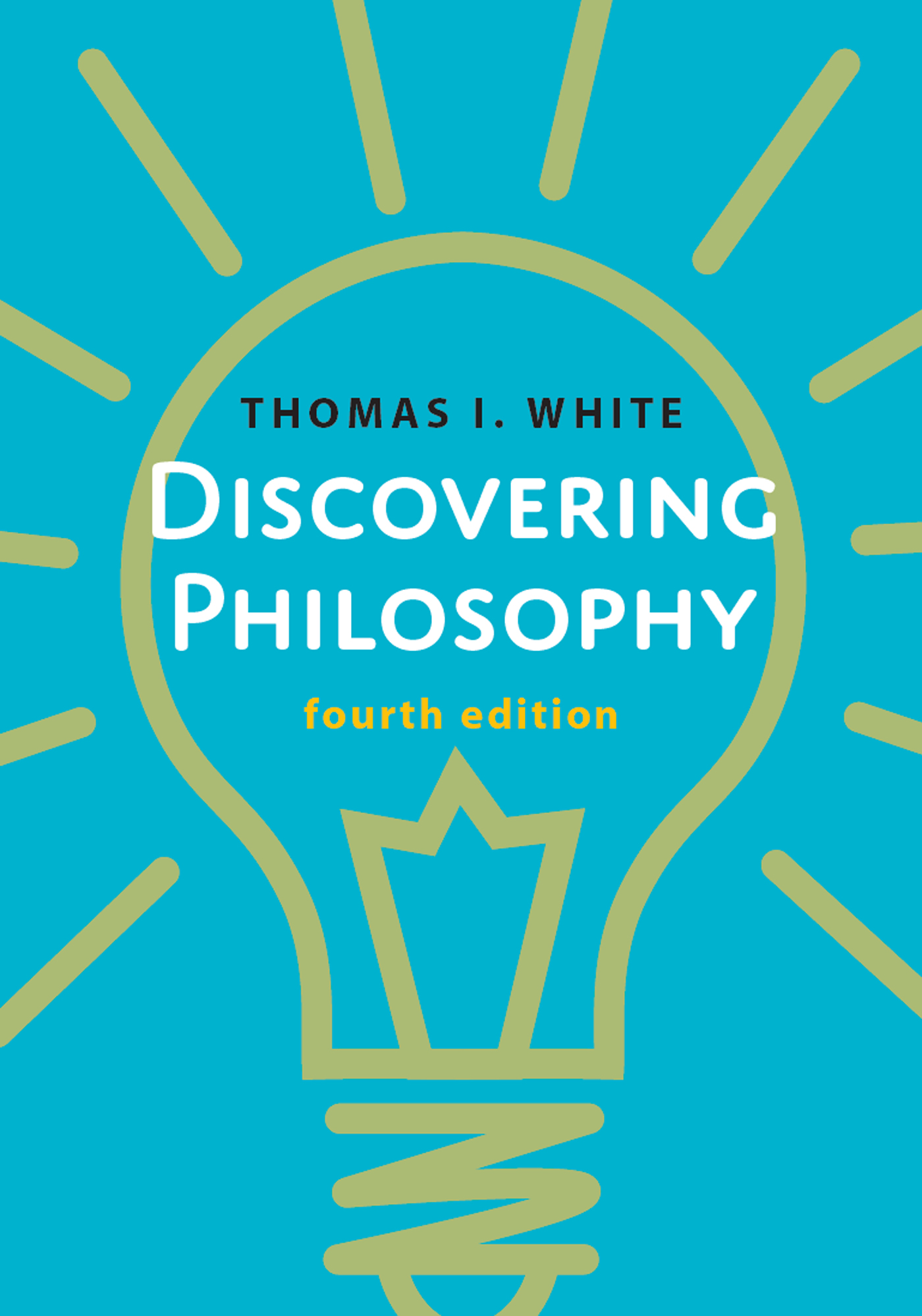Contents
Discovering
Philosophy
Discovering
Philosophy
Fourth Edition
Thomas I. White
Hackett Publishing Company, Inc.
Indianapolis/Cambridge
Copyright 2022 by Hackett Publishing Company, Inc.
All rights reserved
Printed in the United States of America
25 24 23 22 1 2 3 4 5 6 7
For further information, please address
Hackett Publishing Company, Inc.
P.O. Box 44937
Indianapolis, Indiana 46244-0937
www.hackettpublishing.com
Cover and interior designs by E. L. Wilson
Composition by Aptara, Inc.
Cataloging-in-Publication data can be accessed via the Library of Congress Online Catalog. Library of Congress Control Number: 2022930808
ISBN-13: 978-1-64792-104-0 (epub3)
Jackson et al., Applied Ethics: An Impartial Introduction .
Moral Philosophy: A Reader, Fourth Edition . Edited by Louis P. Pojman and Peter Tramel.
Anthony Weston and Stephen Bloch-Schulman, Thinking Through Questions: A Concise Invitation to Critical, Expansive, and Philosophical Inquiry .
Mitchell S. Green, Engaging Philosophy: A Brief Introduction .
Richard Kenneth Atkins, Puzzled?! An Introduction to Philosophizing .
See also Hackett's list of introductory texts and dialogues in philosophy and critical thinking.
Contents
The page numbers in curly braces {} correspond to the print edition of this title.
{ix}
This book aims to be a comprehensive and challenging introduction to philosophy for the student who is more comfortable with secondary than with primary sources. Although philosophers do speak in their own words in this text when appropriate, this book consists primarily of summary, explication, and discussion of the major arguments on the issues involved. The writing style is relatively informal. The text is organized in a conventional and straightforward way. It begins with an overview of philosophy (Chapter 1) and an introduction to logical thinking (Chapter 2). It then explores a series of basic issues related to human action and our dealings with each other: determinism and freedom (Chapters 3 and 4), ethics, and its ultimate justification (Chapters 5 and 6). Next, it proceeds to more theoretical issues: the nature of reality and knowledge (Chapters 7 and 8) and the existence of God (Chapter 9). The book concludes with three chapters that examine nontraditional questions or perspectives: whether a dolphin is a person (Chapter 10), the different claims by Karl Marx and Albert Einstein that things arent the way they appear to be (Chapter 11), and the way that Buddhism and Native American thought see the world very differently from a traditional Western perspective.
Spirit of the Book
My first goal in writing this book was to produce a text that students would actually read. Thus, the style, tone, and content aim to make the text easy to read, unintimidating, and intellectually engaging. In the same spirit, I have also included a fair amount of material from other disciplines. One of the most difficult aspects of teaching introductory philosophy is students limited prior exposure to it. They usually know something about the natural and social sciences, however, so certain chapters may help some students feel more comfortable. The treatment of determinism and freedom (Chapters 3 and 4) employs arguments from psychologists B. F. Skinner and Sigmund Freud and neuroscientist Benjamin Libet. The chapter on dolphins draws from marine biology. Albert Einstein is central to Chapter 11. This book also makes a concerted effort to recognize the important contributions of female thinkers: Carol Gilligan, Virginia Held, Janice Moulton, and Martha Nussbaum.
More than anything else, however, I have tried to write a book that helps students become adept and comfortable with doing philosophyand doing it at an intellectually respectable level. Central to this book, therefore, is the activity of argumentation and consideration of the intricacies of the arguments we explore.
In the exploration of an argument, you will find that I sometimes hazard my own opinion about the strengths or weaknesses of certain positions. (Whenever I do this, however, I try to make it plain that my opinion is just thatmy opinion, not the correct {x} answer, and not something with which you or your students will necessarily agree.) I do this primarily to demonstrate that after understanding a philosophers position we are supposed to react to it, not memorize it. I also do this to stimulate students thinking and to help generate class discussion. My opinion is usually offered simply in passing comments, but I have also included one extended interpretation of some of the philosophical literature discussed. In Chapter 6, I offer a speculative reading of Socratess idea that vice harms the doer. Chapter 10 reflects my own research on the question of dolphins and personhood.
I hope that this book achieves these aims, helps you in working with your students, and helps them reach the goals you set for them in your course. I will be grateful for any reactions, positive or negative, that you or your students have to this text and particularly for any suggestions for improving it.
Every book is the product of many hands, so I would like to express my thanks to those who helped with the revision and production of this book: B. Patrick Williams of Chemeketa Community College; Raymond Watkins of Central Carolina Technical College; Jeff Herman, my agent; Jeff Dean, my editor; Liz Wilson, production director; and Lori Rider, copy editor. Of course, any weaknesses in the final product are my responsibility.
Thomas I. White
Amherst, Massachusetts
{xi}
Western philosophy emerged centuries ago on the shores of the Aegean and in the dusty streets of Athens. To the thinkers of ancient Greece, doing philosophy was a natural part of being human. What is the nature of the world around us? they asked. How do our minds work? What is the path to happiness?
The spirit of philosophy has not changed in the two thousand years that have followed. Philosophy is still devoted to understanding the world around us and within us. It requires that we use our minds to explore reality in general and the human experience in particular. Despite the stereotyped image of the philosopher as someone out of touch with everyday experience, philosophy has the most practical of aims: to understand the basic issues of life. This book is written with the original spirit of philosophy in mind. Its first aim is to show you how natural a part of life philosophy is and that, without knowing it, you have already wrestled with many philosophical problems.
The methodology of philosophy does not come as naturally, however. Accordingly, this book also hopes to introduce you to philosophical argumentation and to skills of analytical and critical thought needed for practicing philosophy. Its second aim, then, is to get you comfortable doing philosophy.
Ultimately, I hope that this book will help you experience firsthand the value, pleasure, and adventure of philosophy. Philosophy enriches our lives in ways that nothing else does. It expands our sense of the nature of our world and of ourselves. It gives us a new universe to explore. It helps us clarify our lifes goals and choose the means by which we hope to achieve them. Philosophy strengthens our control over our own lives and thus helps us remain the captain of our souls. As you experience this for yourself, I hope you will make philosophy an integral part of your life.
{1}
{45}
{139}
{209}
{3}
Most of us have either the wrong idea, or no idea at all, of what studying philosophy is all about. If youre feeling uncomfortable about the prospect of taking a philosophy course, perhaps the following will help ease your mind.

